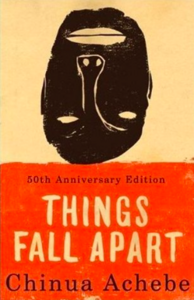You need to sign in or sign up before continuing.
Take a photo of a barcode or cover
adventurous
challenging
dark
reflective
sad
medium-paced
Plot or Character Driven:
Plot
Strong character development:
No
Loveable characters:
No
Diverse cast of characters:
Yes
Flaws of characters a main focus:
Yes
fast-paced
Plot or Character Driven:
Character
Strong character development:
Complicated
Loveable characters:
Yes
Diverse cast of characters:
Yes
Flaws of characters a main focus:
Complicated
dark
tense
fast-paced
adventurous
emotional
informative
tense
medium-paced
Plot or Character Driven:
Character
Strong character development:
Yes
Loveable characters:
Complicated
Diverse cast of characters:
Yes
Flaws of characters a main focus:
Yes
dark
informative
mysterious
reflective
sad
medium-paced
Plot or Character Driven:
A mix
Strong character development:
Complicated
Loveable characters:
Complicated
Diverse cast of characters:
Yes
Flaws of characters a main focus:
Complicated
Book: Things Fall Apart
Author: Chinua Achebe
Rating: ⭐⭐⭐⭐
Review:
Written by a Nigerian author and situated in Africa it follow the story of clans and villages, particularly Okonkwo's life. The only reason why I gave it four stars and not five was because I didn't enjoy the writing style (dialogues where a bit weird and the change in point of view also seemed odd at times). Other than that it's an amazing view, very informative about traditions and cultural norms at the time, it can be a bit enraging when the colonizers make their appearance but it talks about an important part of African history.
Author: Chinua Achebe
Rating: ⭐⭐⭐⭐
Review:
Written by a Nigerian author and situated in Africa it follow the story of clans and villages, particularly Okonkwo's life. The only reason why I gave it four stars and not five was because I didn't enjoy the writing style (dialogues where a bit weird and the change in point of view also seemed odd at times). Other than that it's an amazing view, very informative about traditions and cultural norms at the time, it can be a bit enraging when the colonizers make their appearance but it talks about an important part of African history.
reflective
sad
medium-paced
Plot or Character Driven:
Character
Strong character development:
Complicated
Loveable characters:
No
Diverse cast of characters:
Yes
Flaws of characters a main focus:
Yes
dark
reflective
medium-paced
Plot or Character Driven:
Character
Strong character development:
Yes
Loveable characters:
Complicated
Diverse cast of characters:
Yes
Flaws of characters a main focus:
Complicated
challenging
informative
slow-paced
Plot or Character Driven:
Character
Strong character development:
No
Loveable characters:
No
Diverse cast of characters:
No
Flaws of characters a main focus:
Yes
challenging
emotional
medium-paced
Plot or Character Driven:
A mix
Strong character development:
No
Loveable characters:
Complicated
Diverse cast of characters:
Complicated
Flaws of characters a main focus:
Yes

